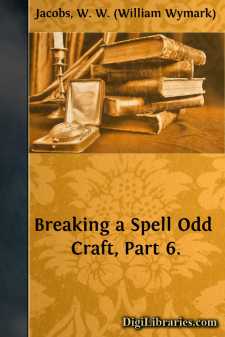Categories
- Antiques & Collectibles 13
- Architecture 36
- Art 48
- Bibles 22
- Biography & Autobiography 813
- Body, Mind & Spirit 142
- Business & Economics 28
- Children's Books 15
- Children's Fiction 12
- Computers 4
- Cooking 94
- Crafts & Hobbies 4
- Drama 346
- Education 46
- Family & Relationships 57
- Fiction 11828
- Games 19
- Gardening 17
- Health & Fitness 34
- History 1377
- House & Home 1
- Humor 147
- Juvenile Fiction 1873
- Juvenile Nonfiction 202
- Language Arts & Disciplines 88
- Law 16
- Literary Collections 686
- Literary Criticism 179
- Mathematics 13
- Medical 41
- Music 40
- Nature 179
- Non-Classifiable 1768
- Performing Arts 7
- Periodicals 1453
- Philosophy 64
- Photography 2
- Poetry 896
- Political Science 203
- Psychology 42
- Reference 154
- Religion 513
- Science 126
- Self-Help 84
- Social Science 81
- Sports & Recreation 34
- Study Aids 3
- Technology & Engineering 59
- Transportation 23
- Travel 463
- True Crime 29
The Changing Numbers Odd Craft, Part 8.
Description:
Excerpt
THE CHANGING NUMBERS
The tall clock in the corner of the small living-room had just struck eight as Mr. Samuel Gunnill came stealthily down the winding staircase and, opening the door at the foot, stepped with an appearance of great care and humility into the room. He noticed with some anxiety that his daughter Selina was apparently engrossed in her task of attending to the plants in the window, and that no preparations whatever had been made for breakfast.
Miss Gunnill's horticultural duties seemed interminable. She snipped off dead leaves with painstaking precision, and administered water with the jealous care of a druggist compounding a prescription; then, with her back still toward him, she gave vent to a sigh far too intense in its nature to have reference to such trivialities as plants. She repeated it twice, and at the second time Mr. Gunnill, almost without his knowledge, uttered a deprecatory cough.
His daughter turned with alarming swiftness and, holding herself very upright, favoured him with a glance in which indignation and surprise were very fairly mingled.
"That white one—that one at the end," said Mr. Gunnill, with an appearance of concentrated interest, "that's my fav'rite."
Miss Gunnill put her hands together, and a look of infinite long-suffering came upon her face, but she made no reply.
"Always has been," continued Mr. Gunnill, feverishly, "from a—from a cutting."
"Bailed out," said Miss Gunnill, in a deep and thrilling voice; "bailed out at one o'clock in the morning, brought home singing loud enough for half-a-dozen, and then talking about flowers!"
Mr. Gunnill coughed again.
"I was dreaming," pursued Miss Gunnill, plaintively, "sleeping peacefully, when I was awoke by a horrible noise."
"That couldn't ha' been me," protested her father. "I was only a bit cheerful. It was Benjamin Ely's birthday yesterday, and after we left the Lion they started singing, and I just hummed to keep 'em company. I wasn't singing, mind you, only humming—when up comes that interfering Cooper and takes me off."
Miss Gunnill shivered, and with her pretty cheek in her hand sat by the window the very picture of despondency. "Why didn't he take the others?" she inquired.
"Ah!" said Mr. Gunnill, with great emphasis, "that's what a lot more of us would like to know. P'r'aps if you'd been more polite to Mrs. Cooper, instead o' putting it about that she looked young enough to be his mother, it wouldn't have happened."
His daughter shook her head impatiently and, on Mr. Gunnill making an allusion to breakfast, expressed surprise that he had got the heart to eat any-thing. Mr. Gunnill pressing the point, however, she arose and began to set the table, the undue care with which she smoothed out the creases of the table-cloth, and the mathematical exactness with which she placed the various articles, all being so many extra smarts in his wound. When she finally placed on the table enough food for a dozen people he began to show signs of a little spirit.
"Ain't you going to have any?" he demanded, as Miss Gunnill resumed her seat by the window....












